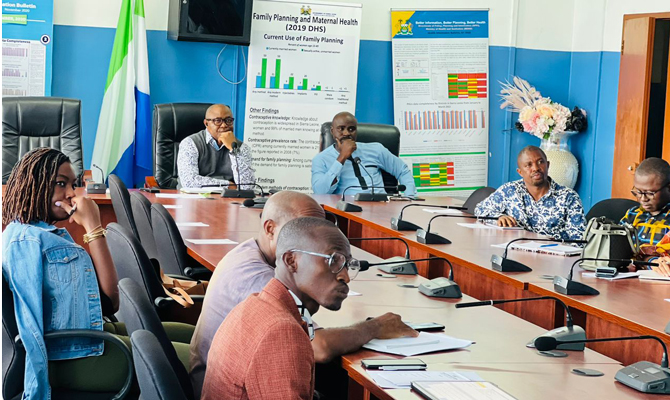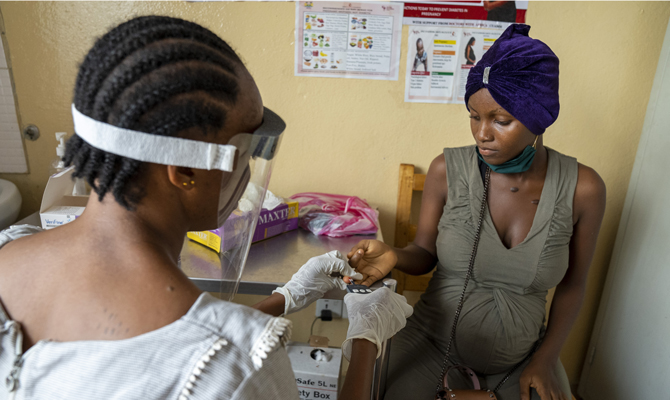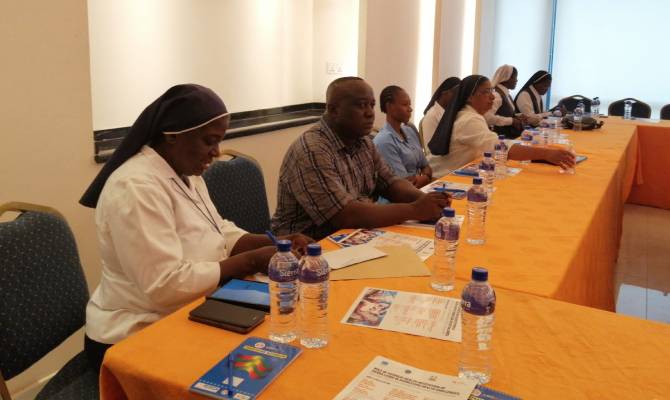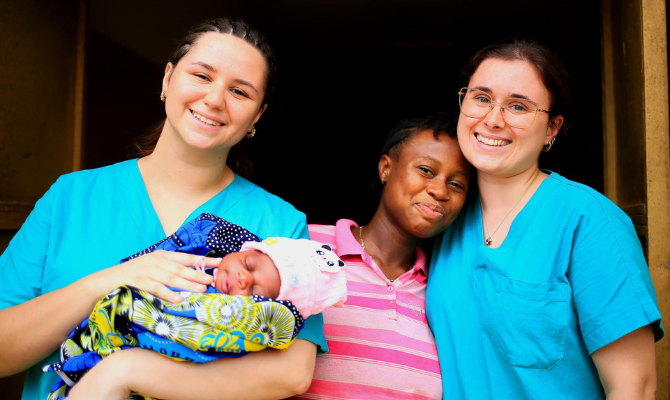On September, Monday 19th in Freetown, Doctors with Africa CUAMM, in partnership with Partners In Health and MOHS, has presented to the Ministry of Health, PEN-Plus NCD Implementation, an integrated care delivery strategy of a group of severe NCDs (Non-Communicable Diseases) as type 1 diabetes, hypertension, rheumatic heart disease (RHD) and sickle cell at secondary levels.
«In Sierra Leone, at the national level, the PEN-PLUS project creates an opportunity to support the Ministry of Health and Sanitation in adopting appropriate tools to guide implementation of the NCD response in the country, strengthen the capacity of health care workers in quality service provision and generate evidence for decision making and advocacy. – states Pauline Kibe, CUAMM Project Manager in Sierra Leone– This success of this project will be pivotal in defining the future of the NCD response in the country».

NCDs are increasingly becoming a profound health concern for Sierra Leoneans and priority for MoHS then. Patients with diabetes living in rural parts of Sierra Leone, one of the world’s poorest countries, with a population of 7.5 million, with over 60% of its residents living below the poverty line often, struggle to get life-saving drugs as programmes addressing non-communicable diseases (NCDs) tend to be urban-based. But an initiative to address life-threatening NCDs affecting patients has been extended to rural parts.
A study on the burden of NCDs in Sierra Leone highlights alarming trends in mortality rates and Disability-Adjusted Life Years (DALYs) resulting from NCDs over the past decade. In 2017, 39.5% of all deaths and 33.9% of all DALYs were attributable to NCDs and other injuries as compared with 18% and 23%, respectively, from the prior 10 years.
It is noteworthy that, in 2013, MOHS began developing and implementing strategies aimed at addressing the increasing burden of NCDs. For instance, the country’s first National NCD policy to facilitate integration of NCD care services into the public health agenda was launched in 2013. Even prior to that, Sierra Leone had also been implementing the WHO Package of Essential Non-Communicable Diseases Intervention (WHO-PEN) for primary health care. While these interventions saw appreciable achievements along some metrics, certain significant challenges still remain. Some of these challenges include low skill levels among health workers, poverty and difficulty maintaining wellbeing, lack of access to quality health services, inconsistent funding, and poor data monitoring and evaluation feedback mechanisms, to name a few.
In an effort to address these ongoing challenges, and to build upon the successes of the country’s WHO PEN programs, Partners in Health, CUAMM and the MOHS are undertaking joint efforts to implement a 3-year PEN-Plus Program (2022-2024). PEN-Plus complements WHO PEN, which addresses less severe NCDs such as uncomplicated hypertension and type 2 diabetes at the health center level. PEN-Plus focuses on service provision in rural settings and aims to provide integrated chronic care services for a group of severe NCDs, including diagnosis, symptom management, psychosocial support, palliative care, and referral for surgical and other specialty care when necessary. PEN-Plus also bridges major gaps in training, mentorship, and referral pathways for NCD services and the program will be training mid-level providers such as nurses and clinical officers.
Given the positive outcomes PIH has had with implementing a NCD clinic in rural areas, noting CUAMMs extensive work on diabetes, and through the strengthened partnership between the two successful organizations, the PEN-Plus program will pursue to establish a “model rural PEN Plus site“ for NCD care in Sierra Leone at KGH (a district hospital), by improving availability and quality of NCD clinical services, conduct a needs assessment in Pujehun District to enable implementation of a second NCD Pen-Plus clinic, establish KGH as a PEN Plus training center and rural rotation site for NCD management, strengthen the decentralized WHO PEN approach for management of less complex cases at primary health facilities in Kono District and collaborate with MOHS to develop a national strategic and operational plan for PEN Plus implementation.
A small step forward to meet the challenges of NCDs.




